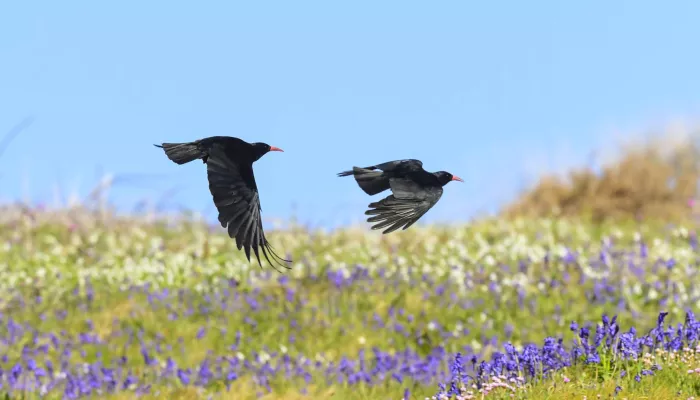| Statistics | |
|---|---|
| Length: | 38cm - 40cm |
| Wingspan: | 82cm |
| Weight: | 310g |
| Average Lifespan: | 7 years |
As the only crow with a red bill and red legs, the all-black chough is easy to identify. But it's harder to spot: there are only small, coastal populations in Scotland, Ireland, Wales, Cornwall and the Isle of Man.
About
The chough lives on short, grazed grassland and coastal heathland where it probes the ground with its long, red bill for insects, such as leatherjackets and beetle larvae. Acrobatic in flight, it has a 'chee-ow' call which is similar to, but louder than, the Jackdaw's. Chough build nests in small colonies in crevices and fissures, on rock ledges and cliff faces, and even in abandoned buildings. They use roots, stems and heather, and line the nest with wool or hair. The female lays three to five eggs and both parents help to raise the chicks
How to identify
A small, glossy black crow, the chough is easily distinguished from the similar Jackdaw by its long, curved, red bill, red legs and entirely black plumage.
Did you know?
The chough is the symbol of Cornwall - it is on the Coat of Arms and, according to legend, King Arthur turned into a chough on his death. It was once so prevalent in the county that it was known as the 'Cornish chough'. Despite being extinct as a breeding bird in Cornwall for many years, a small population has recently returned to nest.
The Chough Reintroduction project
For the last few years, we've been working with Wildwood Trust to facilitate the return of red-billed choughs to Kent, following a 200 year absence due to habitat loss and historical persecution.

